We’re Not Done
Creating Ensemble Theatre and Community with Senior Citizens
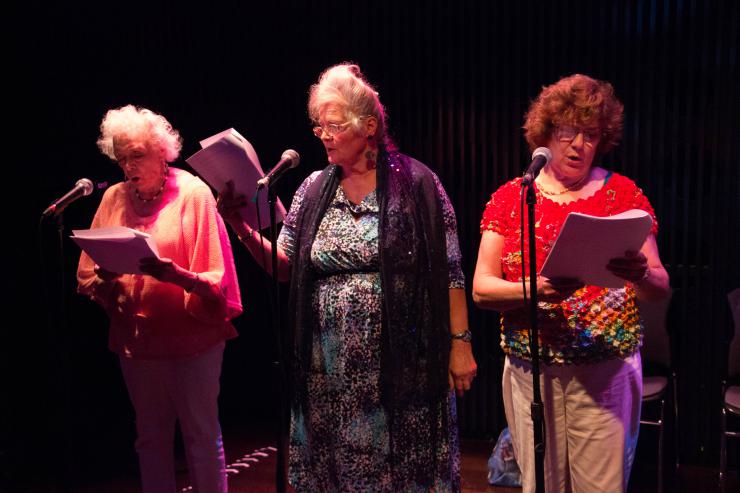
“I want people to know that we are here and our humanity should not be overlooked just because we’re old,” proclaims Roberta as she takes to the stage to perform a monologue about her decision to return to school after age forty. Roberta—now in her sixties—does not consider herself an actor but has sung in choir and has rung bells for her church. She is part of the Senior Ensemble Theatre (SET) program at Queens Theatre, which engages New York City’s senior community in devised theatre and storytelling practices, encouraging them to make theatre about their lives. Participants enrolled in this free program create original ensemble shows, which are performed at their senior center in addition to the Queens Theatre, where other seniors participating in similar programs share work. Seniors do not live at these centers, but attend daily for meals, activities, trips, recreational, and educational programming. This theatre program is one of the many offerings at the center.
How can theatre be used to help maintain strong senior communities?
American throwaway culture pushes senior citizens to the periphery of our society. Strong support systems, especially for LGBT seniors and those without immediate family members, are necessary to ensure long-term physical and mental health, safety, and security. How can theatre be used to help maintain strong senior communities? I recently had the opportunity to explore this subject while completing a four-month residency as a teaching artist with the Queens Theatre.
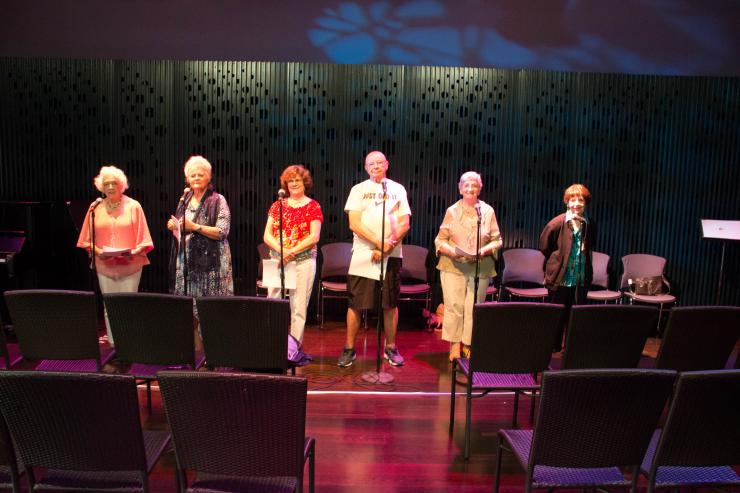
On my very first day, the supervisor of the senior citizen center told me they had requested a painting program, not theatre. I was told that previous theatre programs did not work out in their center, as none of the seniors identified as actors or particularly wanted to try acting, and the other organizations that had tried to start theatre programs became discouraged at the lack of interest and stopped midway through the process. However, the community did enjoy painting, and she asked if I would be willing to do that instead of performing arts.
“Are you the arts and crafts lady?”
“No. I’m here to do theatre.”
“Theatre? Oh, no. We don’t do that here…”
I admit that after several months of resistance, I was also becoming discouraged and questioning whether it was ethical to bring a program to a community that clearly didn’t want it.
It was evident that if I were to stay, I would need to change the narrative about the work we were going to do together, as the current proposal was not speaking to this community. Words like “ensemble,” “devised,” and “performance” were not motivating. Similarly, the idea of public speaking, performing monologues, and being vulnerable in front of their friends was not appealing.
The community did enjoy sharing stories, especially their own life stories. Once prompted and encouraged, they were ready and willing to share. So I began calling it a storytelling program. Each week I would pick a topic related to their communities, lives, or current events, and ask them to share a personal story related to the topic. Additionally, since the group enjoyed arts and crafts, I recruited participants by asking them to draw favorite memories from their lives and share the story of the drawing. We experimented with collaborative painting as well, having seniors add elements to a single drawing and gathering the group together to imagine a scenario for the image.
After about a month, the community began to trust me, and we finally had some regular participants. I began the devising process with short one-on-one workshops where people would share a story with me. I would ask them questions and help them document their work, either through recording their voices or writing in journals. As they continued to gain confidence, they started sharing stories with each other. They were encouraged to bring in personal photos, talk about relatives, share stories about the wisdom they learned from now deceased parents, spouses, and other family members. By the end of the program, each participant left with a journal full of their favorite memories, which they had written.
At the final performance, I inquired why it was so hard to generate interest at the beginning of the process. Several of the participants confided that it was former music and acting teachers who told them they weren’t meant to sing or be on stage, which discouraged them throughout their lives from engaging in the arts. “My music teacher used to tell me that in life there were singers and listeners, and I was meant to be a listener. That hurt me so badly as a child that I never tried music again,” explained Bob. “I guess you could call me a frustrated ham.”
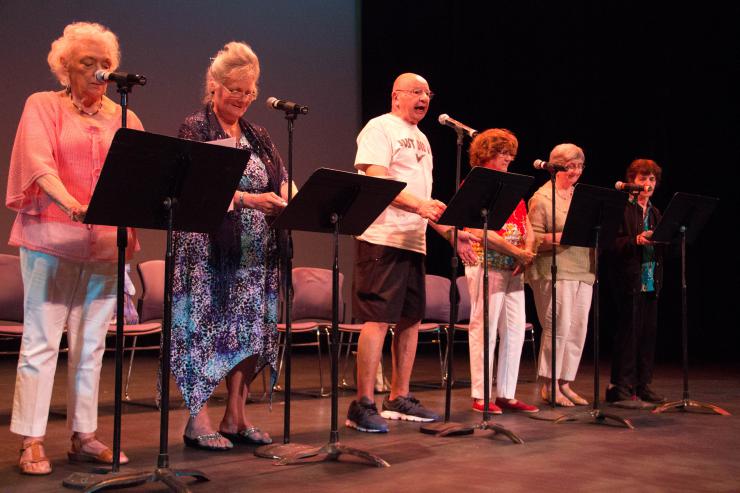
Besides the positive psychosocial effects that theatre programming has on senior communities, recent collaborations between Northwestern and Lookingglass Theatre Company in Chicago have shown that theatre exercises, particularly improvisation, have positive effects on people in early stages of memory loss. While there is no known cure for dementia or Alzheimer’s, theatre helps seniors to live in the moment, be spontaneous, and maintain verbal, physical, and motor skills. Performances by and for community members allowed for participants to meet new friends, expand their social circles and be seen as dynamic and capable individuals. Theatre programming helps seniors regain a sense of self-confidence in cases where mobility and independence may be lost do to health conditions.
“People only see you as you are today and don’t realize you have a history. People assume because you’re old that you never did anything with your life. This process helped us learn more about each other. After I shared my piece, I realized that several others at our senior center went to the same high school. We never spoke before, so this allowed us to reconnect. I hope this performance will inspire people in the future to ask me what I do, as opposed to what I did, because I’m not done yet,” adds Bob.
***
All photos by Ash Marinaccio.

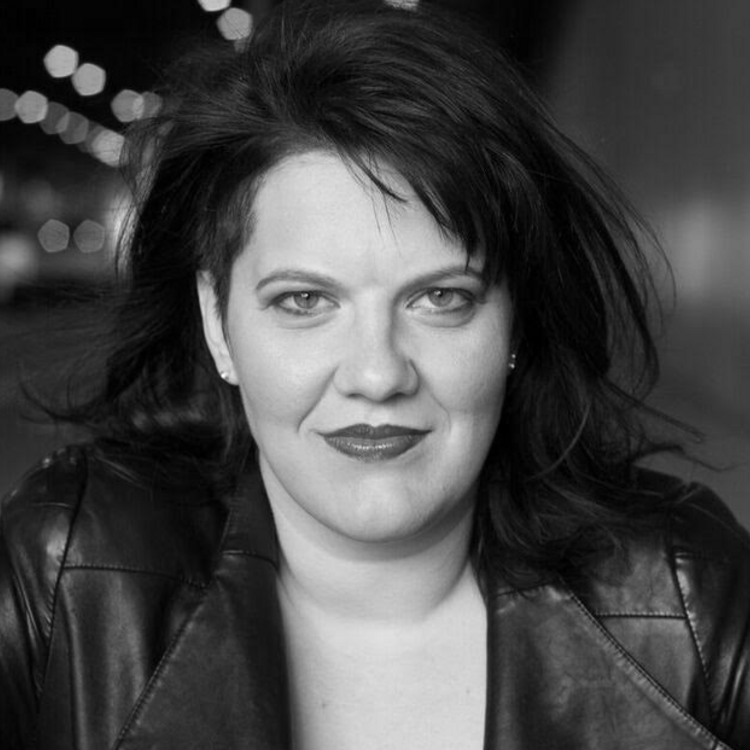
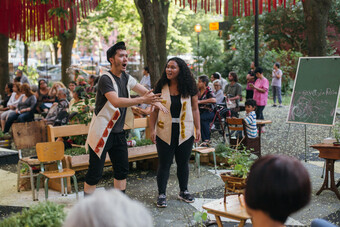

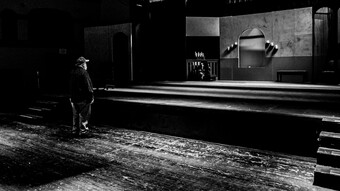


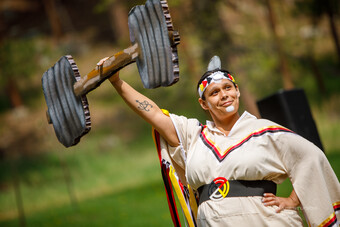

Comments
The article is just the start of the conversation—we want to know what you think about this subject, too! HowlRound is a space for knowledge-sharing, and we welcome spirited, thoughtful, and on-topic dialogue. Find our full comments policy here